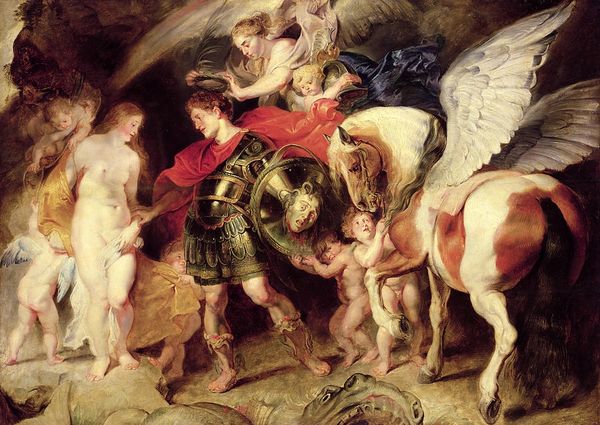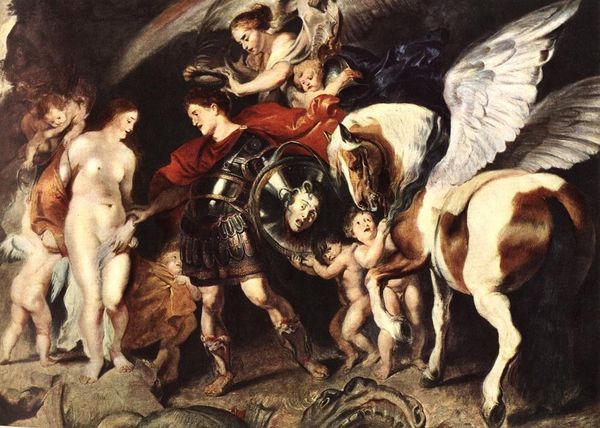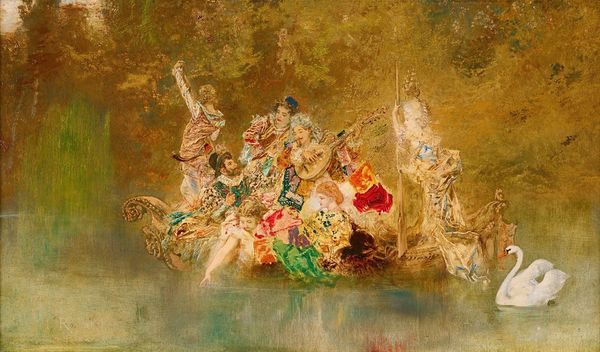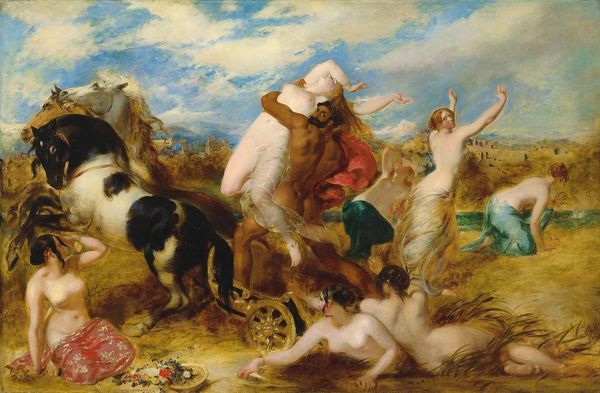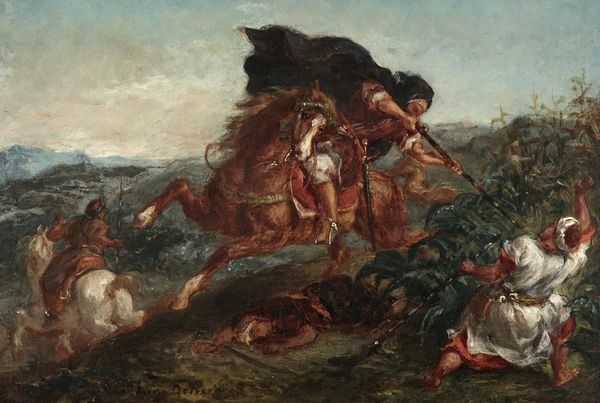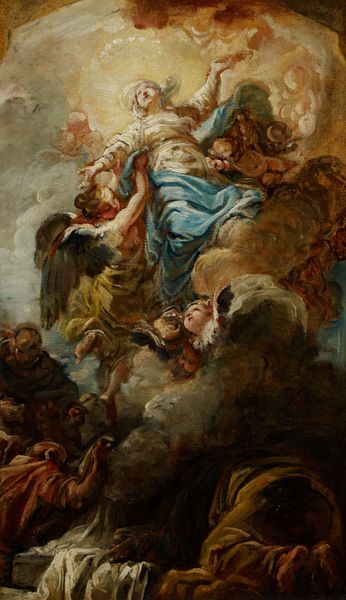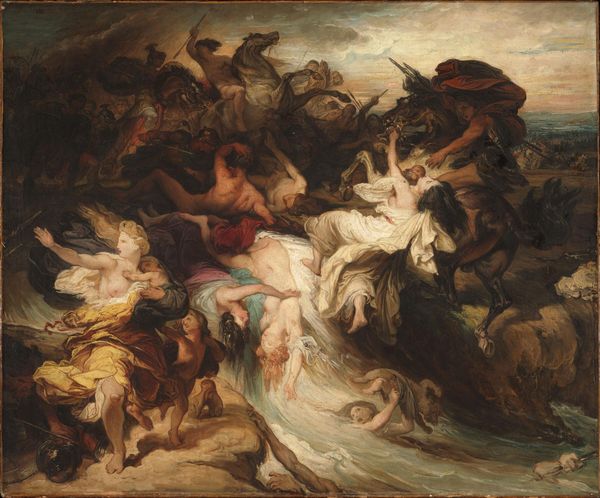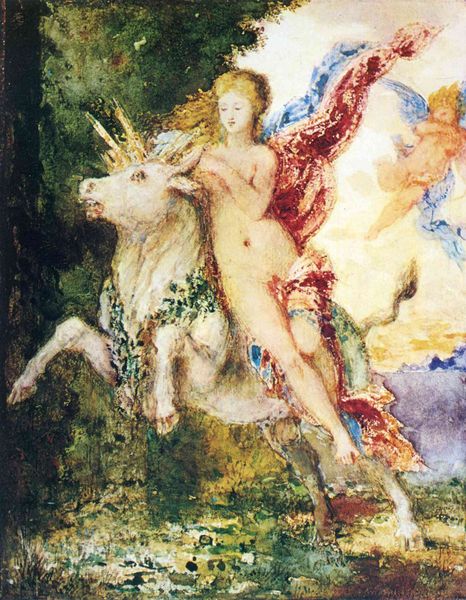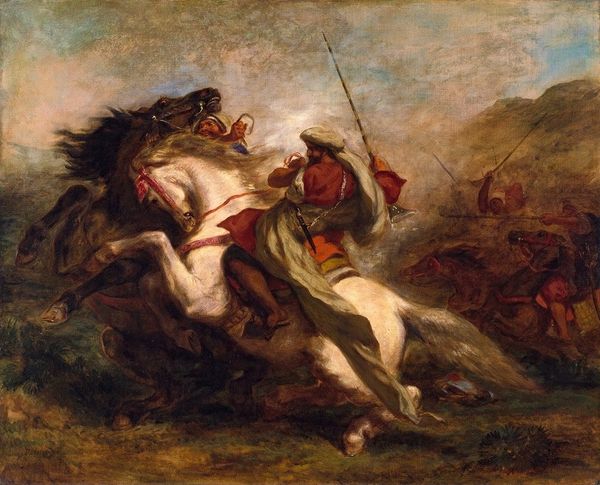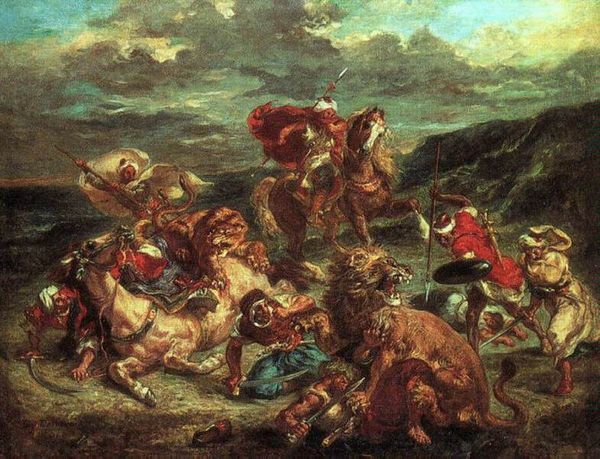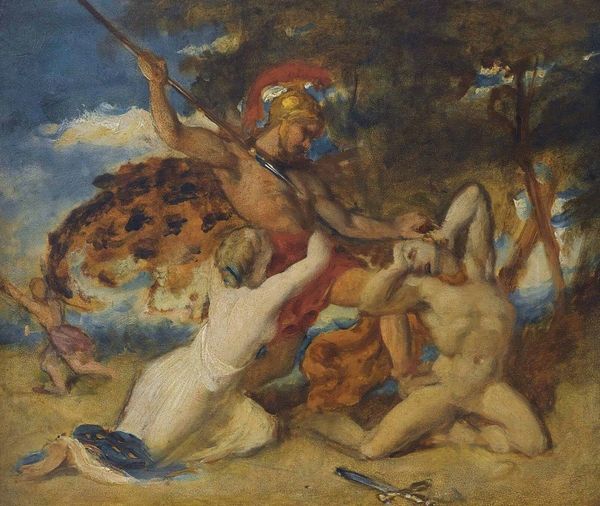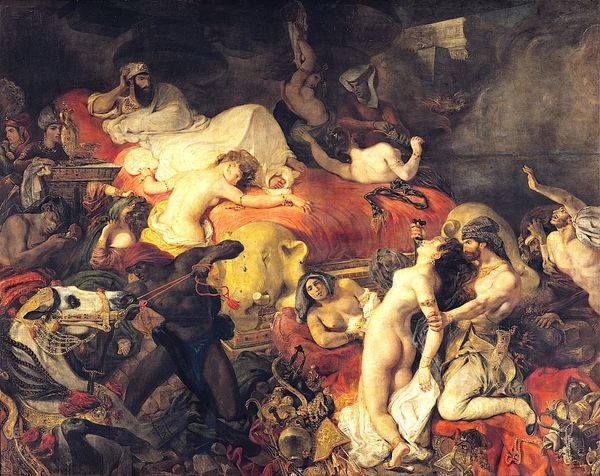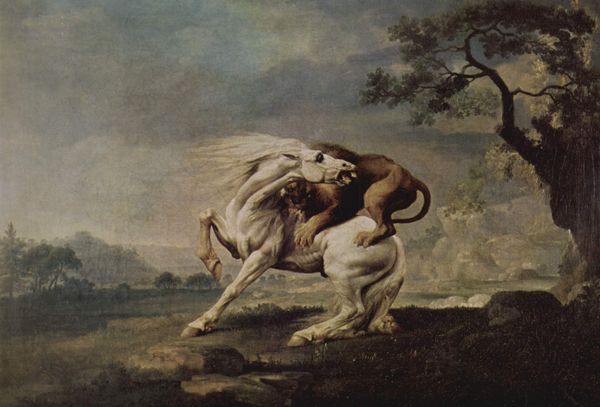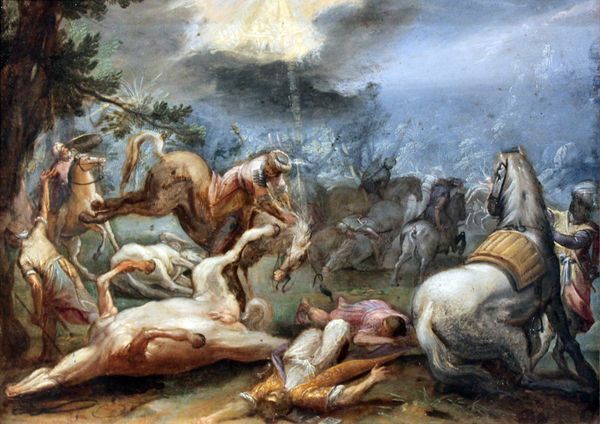
Attila and his Hordes Overrun Italy and the Arts 1847
0:00
0:00
eugenedelacroix
Palais Bourbon, Paris, France
painting, oil-paint
#
allegory
#
narrative-art
#
painting
#
oil-paint
#
war
#
landscape
#
figuration
#
handmade artwork painting
#
oil painting
#
famous-people
#
romanticism
#
mythology
#
painting painterly
#
history-painting
Copyright: Public domain
Editor: This is Eugène Delacroix's "Attila and his Hordes Overrun Italy and the Arts," painted in 1847. The oil painting is just swirling with action, but tinged with loss and despair. The horsemen charging in seem indifferent to the chaos they bring. What strikes you about this piece? Curator: What strikes *me*? A delicious question! For starters, there’s that wonderfully operatic quality, the way Delacroix stages history as pure drama. Look at how he positions Attila, high above the scene like a god of war. And then, just when you expect pure devastation, he throws in these pockets of resistance—allegorical figures, beautiful and resilient even in defeat. What does that resistance *mean*, I wonder? Editor: It’s interesting to consider that tension, particularly in contrast with the almost celebratory abandon of the "hordes" themselves. Curator: Precisely! Delacroix, you see, isn’t just painting history; he's painting an *idea* of history. A grand spectacle of clashing forces. I find myself wondering, what elements feel real versus symbolic? Do you get a similar feeling? Editor: Absolutely. It does feel staged to some degree. Maybe, through its allegorical nature, he can explore themes and ideas beyond the literal event. Curator: A fantastic point. It reminds us that even scenes depicting destruction are about hope and, dare I say, the enduring power of beauty against barbarism. This has certainly altered my perception of the picture; I must rethink it, too. Thank you!
Comments
No comments
Be the first to comment and join the conversation on the ultimate creative platform.
